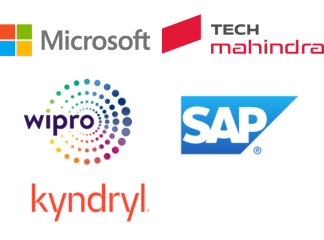Dealer Management Software (DMS) Implementation Challenges and How to Overcome Them

Have you ever wondered why some dealerships run like well-oiled machines while others struggle with delays, mistakes, and frustrated customers? The answer often lies in the systems they use to manage daily operations. A Dealer Management System, or DMS, acts as the backbone of any modern dealership by connecting sales, service, inventory, finance, and customer management into a single platform.
Implementing a DMS can transform your dealership’s efficiency and customer experience. Yet, many dealerships face challenges during this process that slow down progress or cause frustration. Choosing and installing the right system is not just a technology upgrade. It is a significant change that touches every part of your business.
Common Challenges Faced During DMS Implementation
Implementing a Dealer Management System transforms how a dealership operates, but it also brings several hurdles that can slow down progress or cause frustration. Identifying these challenges early prepares your team to handle them effectively.
1. Resistance to Change Among Staff
Introducing new technology often meets resistance from employees. Many feel uneasy about learning unfamiliar systems or worry the change might complicate their daily routines. Without proper engagement, this hesitation can lead to slow adoption and limit the system’s benefits.
2. Data Migration Issues
Moving legacy data into a new system is complex. Mistakes during data transfer can cause lost, duplicated, or corrupted information. Such errors disrupt inventory management, sales tracking, and financial records, leading to costly delays.
3. Integration with Existing Systems
Dealerships typically rely on multiple software tools like CRM, accounting, or OEM portals. If these systems fail to communicate smoothly with the new DMS, it results in duplicated data entry, errors, and inefficiencies.
4. Insufficient Training and Support
Even the best systems fail if users do not understand how to use them properly. Without comprehensive training, employees may feel confused or frustrated. Poor or delayed vendor support compounds these problems and slows resolution of issues.
5. Customization and Scalability Constraints
No two dealerships work the same way. A DMS that cannot adapt to specific workflows or grow with the business restricts productivity and future expansion.
6. Cost Overruns and Budget Management
Unexpected expenses often arise during implementation, including hidden fees for training, additional licenses, or hardware upgrades. Without a clear budget and monitoring, these costs can exceed projections and strain resources.
7. Downtime and Disruption of Daily Operations
Switching to a new system often interrupts daily work. Unplanned downtime affects sales, service delivery, and customer satisfaction. Minimizing these disruptions is essential but challenging.
How Excellon Specifically Addresses These Challenges
Overcoming challenges during DMS implementation requires more than technology—it demands a partner who understands the complexities and offers practical, hands-on support. Excellon combines flexible software with expert services to guide dealerships through every step of the process.
1. Easing Resistance to Change
Excellon prioritizes people alongside technology. Before rollout, we engage your team through tailored workshops and training sessions designed to build confidence and address concerns. Our approach encourages active participation, making employees feel involved and valued. Continuous support is available 24/7, so your staff never face issues alone.
2. Seamless Data Migration
We understand how critical your data is. Excellon’s experienced migration team conducts thorough audits and cleansing of your existing data before transfer. Using proven tools and best practices, we ensure accurate migration with minimal disruption. Post-migration validation confirms data integrity, allowing your operations to continue smoothly.
3. Strong Integration Capabilities
Excellon DMS features open APIs designed to work well with your current CRM, accounting software, and OEM systems. Our technical team carefully tests integrations before launch to avoid disruptions. When needed, we implement phased integration strategies to ease your transition and maintain workflow consistency.
4. Comprehensive Training and Ongoing Support
Excellon provides role-specific training programs tailored to your dealership’s needs. These include hands-on sessions, user manuals, and refresher courses to keep knowledge fresh. Our support team is available around the clock to resolve issues quickly, ensuring your team stays productive and confident with the system.
5. Customization and Scalability
Every dealership is unique. Excellon offers a modular DMS that adapts to your specific workflows and scales as your business grows. Our platform supports adding features or expanding users without downtime, helping you stay flexible and future ready.
6. Transparent Budgeting and Cost Management
We believe in clear communication about costs. Excellon provides detailed pricing upfront, including licenses, training, support, and potential hardware needs. This transparency helps dealerships plan budgets confidently and avoid surprises during implementation.
7. Minimizing Operational Disruption
To keep your business running smoothly, Excellon plans implementations during off-peak hours or in phases. Backup procedures and contingency plans are in place to handle unexpected issues. Clear communication keeps your staff and customers informed throughout the process.
General Best Practices for Successful DMS Implementation
A smooth and effective Dealer Management System rollout depends on a combination of thoughtful planning, team involvement, and ongoing evaluation. The following best practices help dealerships get the most from their DMS investment.
1. Conduct a Thorough Needs Assessment and Vendor Evaluation
Start by clearly identifying your dealership’s specific needs and goals. Evaluate multiple vendors by comparing features, ease of use, integration capabilities, and support offerings. Request demonstrations and speak with existing clients to ensure the solution fits your business.
2. Set Clear Goals and Key Performance Indicators (KPIs)
Establish measurable objectives for your DMS implementation. These might include reducing manual errors, speeding up service scheduling, or improving customer follow-up rates. Tracking KPIs allows you to monitor progress and make informed adjustments.
3. Involve Cross-Functional Teams
Include representatives from sales, service, finance, IT, and management throughout the implementation process. This ensures all workflows are considered and increases user buy-in, which is critical for successful adoption.
4. Develop a Detailed Implementation Plan
Break the project into manageable phases with defined timelines and responsibilities. Planning in detail helps identify potential bottlenecks and allows for timely intervention.
5. Prioritize Training and Communication
Deliver role-specific training to all users before and after going live. Maintain open communication channels to address concerns quickly and gather feedback. Continuous education reduces errors and builds confidence.
5. Monitor Performance and Adapt
After launch, regularly review system usage and performance metrics. Encourage feedback and be prepared to refine processes or provide additional training as needed.
6. Ensure Data Security and Compliance
Confirm that your DMS provider adheres to industry security standards. Protecting sensitive customer and financial information safeguards your dealership’s reputation and legal compliance.
Final Thoughts
Implementing a Dealer Management System comes with its share of challenges. However, with careful preparation and the right partner, these obstacles become manageable milestones on the path to greater efficiency and growth.
Excellon stands beside dealerships throughout this journey, offering a flexible, scalable DMS tailored to your unique needs. Our comprehensive training programs, reliable 24/7 support, and proven data migration processes ensure your team stays confident and your operations run without interruption.
By choosing Excellon, you gain more than software you gain a committed partner invested in your dealership’s long-term success. Together, we can streamline your workflows, reduce errors, and enhance the customer experience.
Take the next step toward transforming your dealership operations. Connect with Excellon to discover how our Dealer Management System can help your business thrive in a competitive market.
You may also Like

Service operations in the automotive industry depend heavily on accuracy, speed, and coordination. Excellon’s B2B Service Mobile App is designed to support these requirements through a structured, intuitive platform tailored for technicians and service.…

From Compliance to Connectivity: A Modern DMS for Automotive Dealerships in Colombia
Dealership in Colombia is about much more than selling cars. Across cities like Bogotá, Medellín, Cali, Barranquilla, and Bucaramanga, dealerships must comply with DIAN regulations, meet OEM demands…

Excellon’s B2B mobile application is designed to provide sales teams and channel partners with a smart, structured, and intuitive platform to manage their interactions, track performance, and respond to leads....


